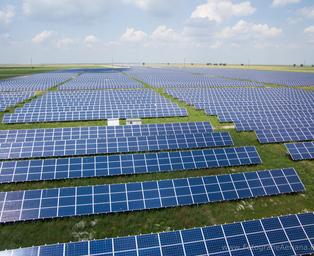The Romanian Government has approved the draft Emergency Ordinance amending the country’s renewable energy law (Law 220/2008), which is expected to improve the trade of green certificates.
The new package of measures has eliminated the validity period of only 12 months for the green certificates, extending it for the entire period of the support scheme operation, until 2032.
Furthermore, the new rules impose that power plant operators will pay the profit tax at the time of the green certificate trading. Prior to this new legislation, they had to pay it when they registered the installations on their accounts.
The new law establishes that the mandatory quota for purchase alotted to electricity suppliers will be replaced with a new mechanism, called the static green certificate amount, which will be reviewed every two years by local energy regulator ANRE.
The new rules envisage the creation of anonymous platforms for the trading of green certificates on centralized electricity trading markets, which is expected to be beneficial for both large and small producers.
The Romanian Photovoltaic Industry Association (RPIA) has welcomed the new measures, although adding that do not go far enough in solving problems, and will benefit “only a small part of the renewable energy sector in Romania.”
According to the Romanian Government, extension of the green certificate's validity will enable the sale of surplus green certificates, and ensure a better sale rate to market participants.
Under the current legislation, green certificates are granted only to those operators that connected their PV projects not later than Jan. 31, 2016. A PV power producer is entitled to receive green certificates over a 15-year period. A green certificate can be traded on a regulated market called OPCOM for a minimum price of €28.8 ($30.4) to a maximum of €58.8 Euro ($62.0). These values are subject to indexation on a yearly basis, taking into account the euro zone inflation rate.
This content is protected by copyright and may not be reused. If you want to cooperate with us and would like to reuse some of our content, please contact: editors@pv-magazine.com.




By submitting this form you agree to pv magazine using your data for the purposes of publishing your comment.
Your personal data will only be disclosed or otherwise transmitted to third parties for the purposes of spam filtering or if this is necessary for technical maintenance of the website. Any other transfer to third parties will not take place unless this is justified on the basis of applicable data protection regulations or if pv magazine is legally obliged to do so.
You may revoke this consent at any time with effect for the future, in which case your personal data will be deleted immediately. Otherwise, your data will be deleted if pv magazine has processed your request or the purpose of data storage is fulfilled.
Further information on data privacy can be found in our Data Protection Policy.